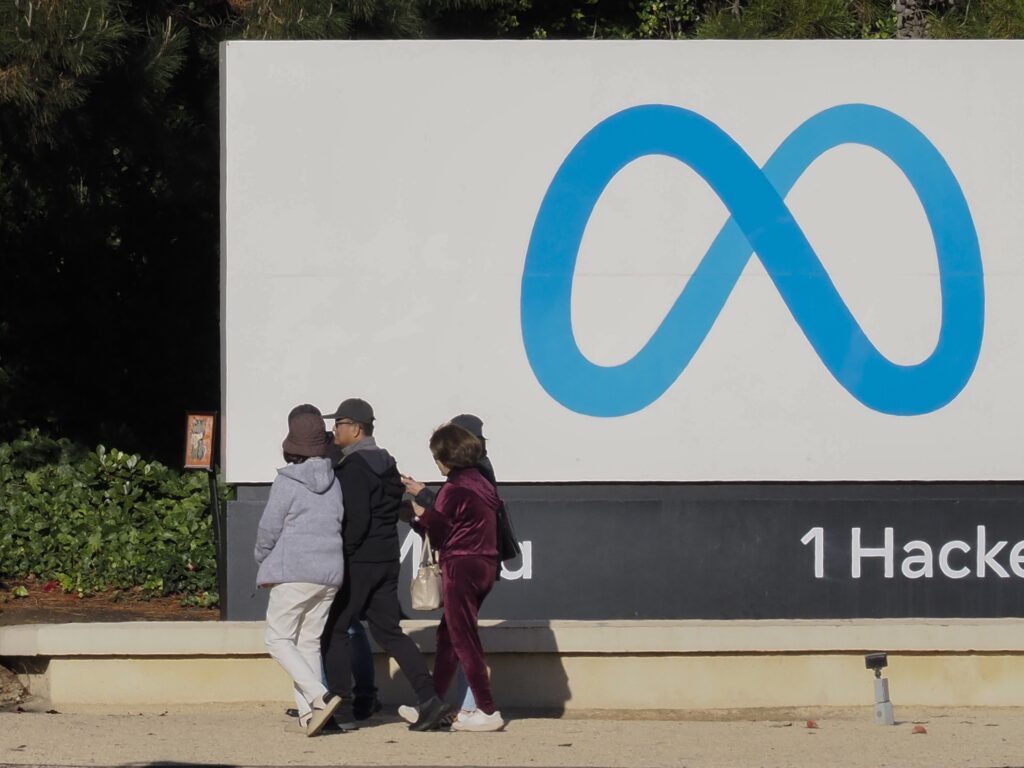Twenty years ago, consumers went to Amazon to buy their books, Facebook to find their friends and YouTube to watch silly videos.
Today, all three companies — and plenty of newer rivals — compete against each other in the internet marketplace by offering their own forms of commerce, entertainment and socialization.
That inexorable process of reinvention and copying each other to become everything to everyone has blunted a once-powerful antitrust movement seeking to rein in the market power of Big Tech.
In ruling Tuesday that Facebook parent Meta isn’t an illegal monopoly, U.S. District Judge James E. Boasberg in D.C. rejected the Federal Trade Commission’s years-long effort to force the social media giant to divest its acquisitions of Instagram and WhatsApp. His basic argument: Whether or not Meta ever dominated “personal social networking,” as the FTC alleged, it now vies head-to-head with fellow goliaths such as YouTube and TikTok in the booming market for short videos.
“Boasberg is simply looking at the fact that these are highly dynamic industries in which market shares change all of the time,” said Herbert Hovenkamp, a professor at the University of Pennsylvania Law School and the Wharton School. “You have firms that are growing, others that are declining, new companies that are coming. In that kind of environment, antitrust courts need to be a lot more reluctant to intervene.”
When the FTC and the Justice Department started investigating the market power of big online platforms in 2019, a politically diverse chorus of regulators, analysts and prominent lawyers were calling for the breakup of Amazon, Apple, Google and Meta, then called Facebook. Sen. Elizabeth Warren (D-Massachusetts) and Sen. Josh Hawley (R-Missouri) contended that those behemoths had amassed too much power over users’ data, hurt the livelihoods of mom-and-pop businesses, and limited Americans’ freedom of speech online.
Now what once looked like a 21st-century trust-busting movement appears to be losing some steam. A bipartisan push to pass laws to curb tech platforms’ power was never brought for a vote by the Democratic-led Senate in 2022. The Trump administration has aligned itself with Big Tech on a number of policy issues, including supporting American companies’ edge in the global AI race. And while courts have issued some significant judgments against tech companies, judges have shied away from ordering outright breakups.
They have instead generally reflected a conventional wisdom that prevailed for two decades after the government’s messy bid to break up Microsoft in the 1990s: that the tech industry moves too fast for the government to effectively intervene.
“Monopolization litigation cases move like an ostrich, and the market is moving like a Formula One racer, and that’s not a good fit,” said William Kovacic, a law professor at George Washington University and a former FTC Chair.
Advocates of tougher antitrust enforcement against tech companies saw the Meta decision as another setback in their campaign to rein in Silicon Valley’s power.
“I think it’s a catastrophic decision for antitrust and for Big Tech accountability more generally,” said Slade Bond, who was the chief counsel for the Democratic-led House antitrust subcommittee during the Biden administration. “I think the court’s decision fundamentally misconstrued how these markets work.”
Since the FTC first filed its lawsuit against Facebook, five years ago, the tech marketplace has changed dramatically. The global AI race has scrambled the pecking order in Silicon Valley, leading old rivals into new battles to poach top talent, quickly release AI models and hoard computing power.
Consumers’ social media habits have changed too. Users who once turned to sites like Facebook and Instagram to see photos and life updates from their friends and family now scroll through AI-powered video feeds. Today’s users flock to social media to find content from influencers and celebrities they don’t know, while communicating with their loved ones in private messages.
The FTC, which first filed its lawsuit against Meta the same year as Instagram debuted its short-form video product known as Reels to compete with the ascendant TikTok, has struggled to keep up with those shifting dynamics. The agency argued that Meta held a monopoly in the “personal social networking” market and identified the ephemeral messaging app Snapchat as its next-biggest competitor.
Boasberg didn’t buy the FTC’s analysis of the competitive landscape, pointing to evidence from Meta that it faces a broader set of competitors. When TikTok was banned in India in 2020, and briefly in the U.S. this past January, users flocked to Facebook and Instagram.
“When consumers cannot use Facebook and Instagram, they turn first to TikTok and YouTube. When they cannot use TikTok or YouTube, they turn to Facebook and Instagram,” Boasberg wrote. “That evidence leaves the Court with no doubt that TikTok and YouTube compete with Meta’s apps.”
The Meta ruling comes on the heels of antitrust lawsuits against Google that have yielded mixed results. In a landmark 2024 ruling, U.S. District Judge Amit P. Mehta found Google was guilty of illegally monopolizing internet search — opening the possibility of a dramatic breakup. The Justice Department pushed for Mehta to force the company to sell off its Chrome web browser.
But in September, Mehta declined to break up the search giant, finding that the rise of AI chatbots such as ChatGPT had shaken up its monopoly and revived competition. He ordered more modest changes, barring the company from striking exclusive search deals and requiring it to share some information with rivals.
In a separate case, another federal judge found in April that Google had also monopolized online advertising. The two sides in that case are expected to hold closing arguments in the coming weeks as to what the consequences should be.
“We’re constantly seeing that what consumers want has evolved and changed, and that oftentimes new, disruptive entrants can still gain market traction,” said Jennifer Huddleston, a senior fellow in technology policy at the libertarian Cato Institute. “Innovation is our best competition policy.”
The specter of a breakup looms over two other tech giants, Amazon and Apple. Both are facing lawsuits launched during the Biden administration. But with trials in those cases years away, the results of the Meta and Google trials suggest time may be on their side.
“I think two cases that could be in trouble are the Apple case and the Amazon case,” said Hovenkamp, arguing that it is now harder to prove that Apple or Amazon have a dominant position in a defined market. “Market shares or market power attaches to products, not to firms.”
Biden’s FTC sued Amazon in September 2023, alleging that it monopolized online shopping, then used its power to squeeze merchants and deter them from offering cheaper deals elsewhere. Amazon countered that its business practices were standard in the retail industry and didn’t stifle competition.
In September 2024, a federal judge dismissed parts of the case but allowed core claims to move forward. A trial was initially set for 2026 but has since been pushed to 2027.
In March 2024, Biden’s Justice Department accused Apple of stifling competition in the smartphone market by putting fees and restrictions on rival companies’ apps. Apple moved to dismiss the case, arguing that those moves were made to improve iPhone customers’ experience. But a federal judge ruled in June that the suit can move forward.
If U.S. antitrust enforcers continue to lose cases against big tech companies, it may prompt policymakers to reevaluate whether the court system is the right tool to regulate the power of dominant firms, Kovacic said — and whether legislation is needed.
“I think it’s going to rekindle the debate over whether we’re using the right strategy to deal with tech,” he said.
The post The government failed to break up Meta. It’s becoming a pattern. appeared first on Washington Post.




